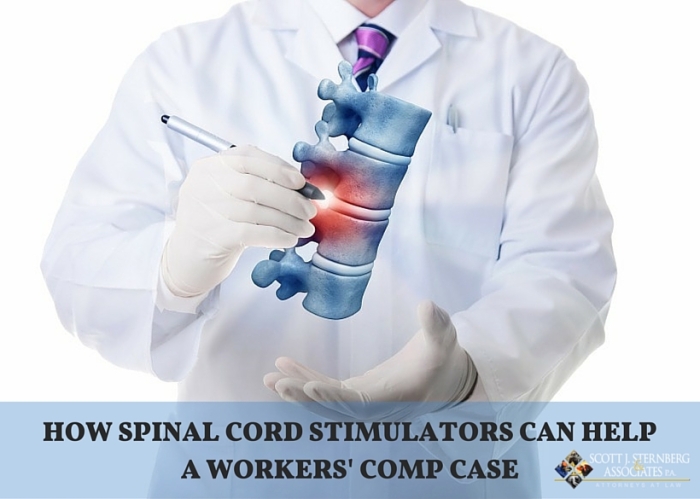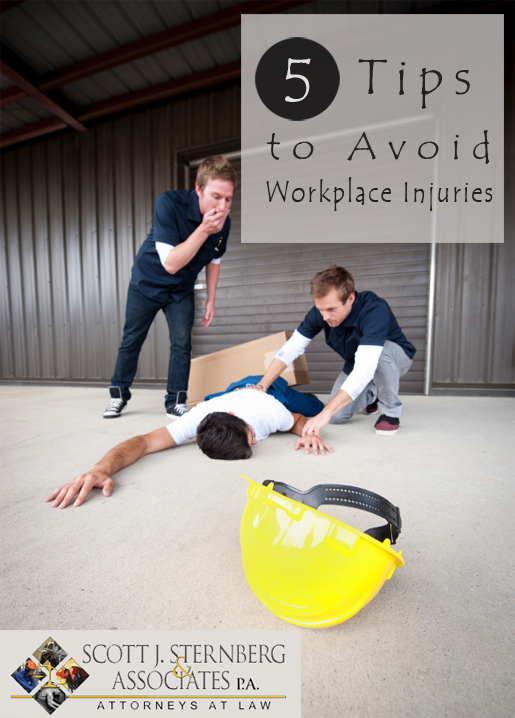Spinal cord stimulation is an option for those who have had multiple back surgeries, but who still continue to have back problems. If your physician recommends getting a spinal cord stimulator, it is much more likely that your employer will approve the treatment. The effectiveness of this treatment varies a great deal, and it is still a very new process. However, for some, it has been effective when nothing else seems to stop their back pain.

What is a Spinal Cord Stimulator?
Believe it or not, spinal cord stimulators have been in existence since at least the 1960s. They are used to treat pain problems, especially problems that involve the lower back and leg pain. Specifically, they are used when other methods of pain management or surgery have failed.
Although the FDA approved this treatment in 1989, the workers’ compensation world has only recently begun approving this type of treatment for workers’ compensation participants.
A spinal cord stimulator applies an electrical current to the source of the patient’s pain. In essence, the electricity replaces the pain that the body feels. This tricks the brain into thinking that the sensation is pleasurable instead of painful because it blocks the brain’s ability to sense the pain in that area.
Implanting the Spinal Cord Stimulator
The stimulator is actually implanted into the body using one of two methods. In the first method, thin wires are placed near the spinal column. The doctor will use a small, specialized needle for this procedure. Using this method, the doctor does not need to make an incision into the back. The doctor will, however, need to make an incision to place the generator in the back. It is usually placed in the upper buttock or abdomen area, under the skin. The generator does have batteries that will need to be changed periodically—usually every eight years with normal use.
The second method also involves a generator and leads. Technically, it is not called spinal cord stimulation. It is known as Peripheral Nerve Field Stimulation. However, the only real difference is that the leads are just under the skin instead of near the spinal column. The leads are placed in close proximity to the nerves that are causing the pain.
In both methods, the generator is programmed in a way that will help you get the most out of your stimulation. However, getting the program just right is sometimes difficult to do. It takes time to get the program right, and patients may not see results right away. Your doctor can change the intensity, the area that receives the electrical current, and even turn it on and off to fit your needs. It comes with a TV-like remote to control many of these variables.
Pros and Cons of Using a Spinal Cord Stimulator
One of the main reasons that workers’ compensation beneficiaries like spinal cord stimulators is because they seem to help when doing else does. Although there is a surgery to implant the device, it is minimally invasive.
There are, however, a few cons to using this device. The first is that it may not work for everyone, and not everyone is a candidate to use this type of treatment. You must first go through a trial to determine if this type of treatment will fit with your unique situation. In addition, some studies indicate that the stimulator will work as a short-term solution, but may not work in the long term.
Second, it can be very costly. In workers’ compensation, your medical expenses will generally be covered as long as they are recommended and performed by an authorized physician. Without this recommendation, you may need to pay for your medical procedures yourself. According to one study done in 2011, the mean medical cost for this device over a 24-month period was $52,091. Obviously, if workers’ compensation does not pay for it, then it can cause some serious budgetary concerns.
You must weigh the pros and cons for yourself. What works for one workers’ compensation beneficiary may not work for the next. Your doctor and your West Palm Beach Florida workers’ compensation attorney can help you with this process and decision if you think this treatment may be an option that may help you.
Sources:
http://www.sternberglawoffice.com/a-quick-guide-to-estimating-workers-compensation-benefits/
http://www.ncbi.nlm.nih.gov/pubmed/21738098
http://www.spine-health.com/treatment/back-surgery/spinal-cord-stimulation-chronic-pain
http://professional.medtronic.com/wcm/groups/mdtcom_sg/@mdt/@neuro/documents/documents/scs-fbss-litsum.pdf


